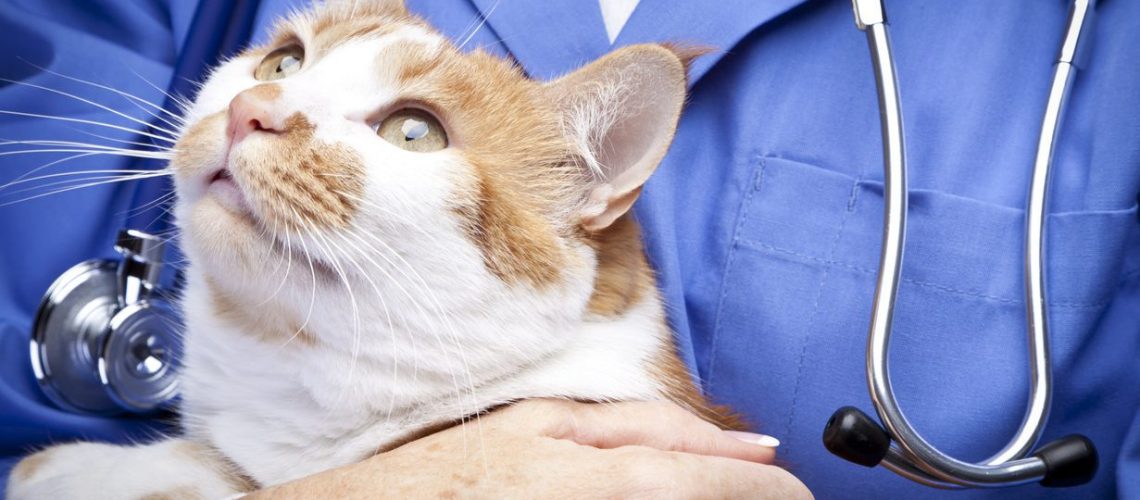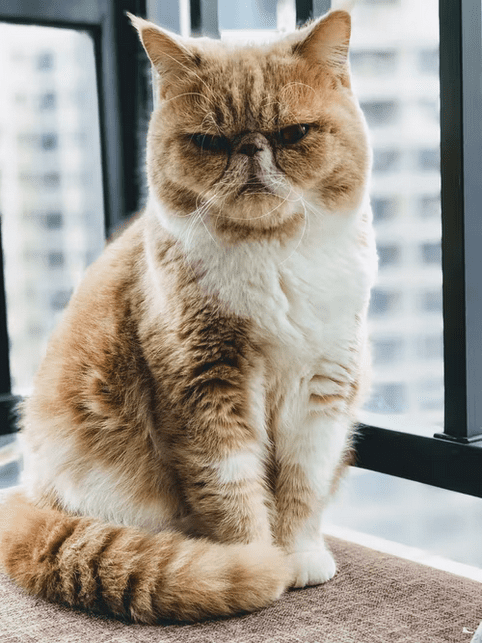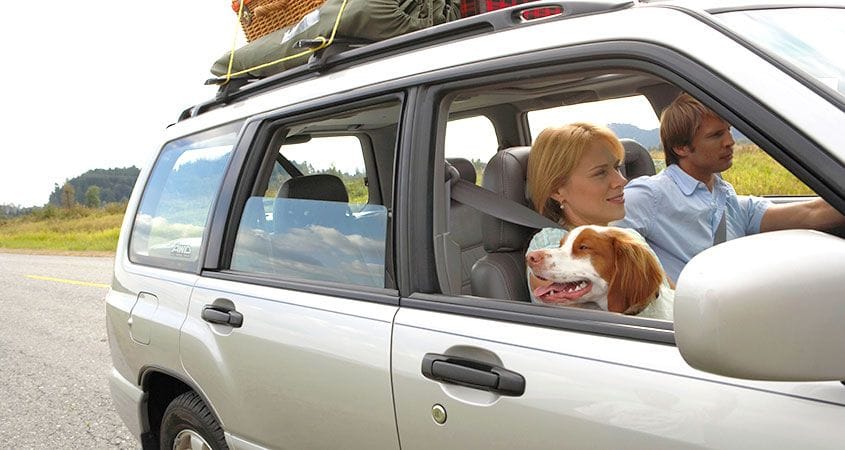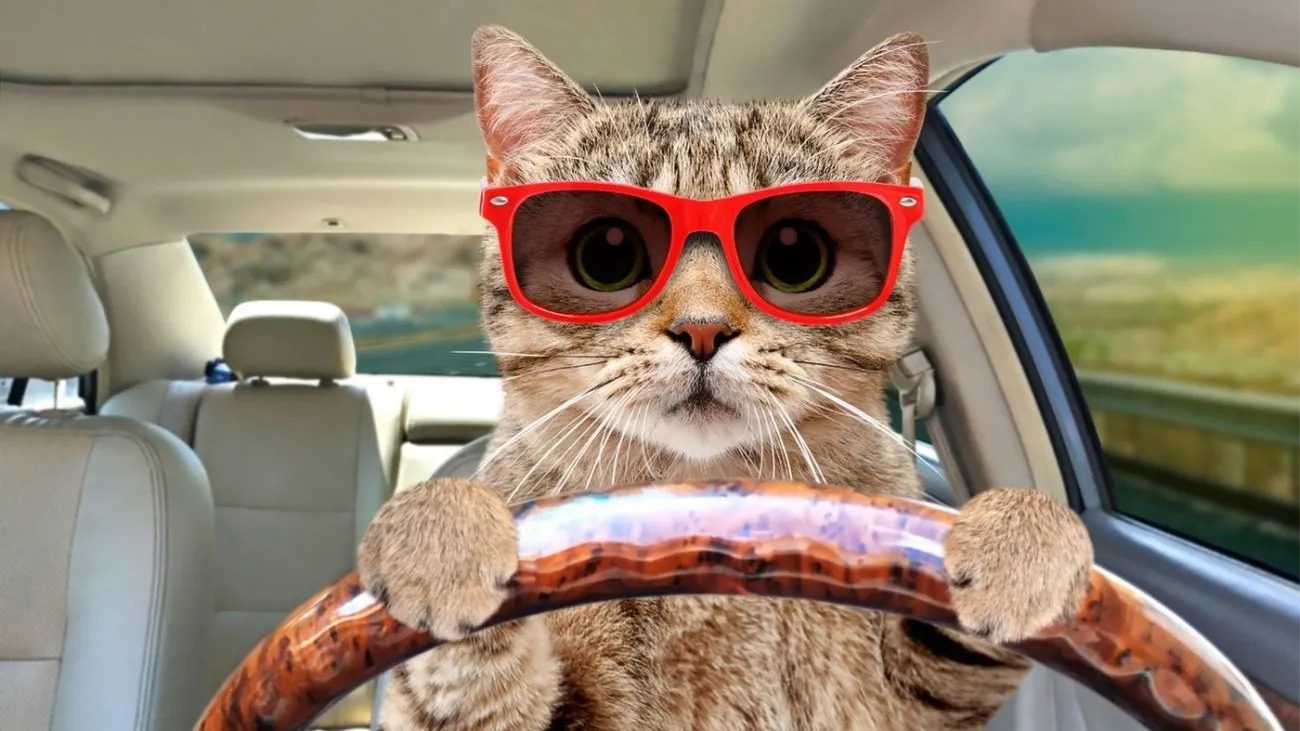Are you tired of dealing with a grumpy cat after a trip to the vet? Imagine how much easier your life would be if you knew the secrets to calming your feline friend and restoring their usual happy demeanor. Understanding how to help your cat relax after a vet visit is essential for their well-being and can even improve their overall health. In this article, we will explore effective techniques that will leave your post-vet grumps in the past. So, get ready to discover the power of soothing your cat's worries and creating a peaceful environment for them to thrive in.
Key Takeaways:
- Give the cat some space and allow them to decompress after a vet visit.
- Provide a quiet and comfortable environment for the cat to relax in.
- Offer treats or favorite toys as positive reinforcement for good behavior during and after the vet visit.
- Be patient with the cat's behavior as they may exhibit signs of stress such as hiding or being more vocal than usual.
- Gradually reintroduce regular routines and activities to help the cat feel more secure and settled after the vet visit.
Understanding Post-Vet Grumps: How to Calm Your Cat After a Vet Visit
Reasons Why Your Cat Might Feel Grumpy After Seeing the Vet
After a trip to the vet, your cat may feel grumpy or agitated for several reasons. Firstly, visiting the vet can be stressful for cats as they are taken out of their familiar environment and placed in an unfamiliar setting. This change in routine and surroundings can make them feel anxious or scared.
Secondly, during a vet visit, cats may experience uncomfortable procedures such as vaccinations, blood tests, or physical examinations. These procedures can cause temporary discomfort or pain, leading to grumpiness afterwards.
Helpful Tips for Calming Your Cat After a Trip to the Vet
If you notice that your cat is feeling grumpy after a vet visit, there are several things you can do to help them relax and feel more comfortable:
- Create a quiet and safe space for your cat: Set up a cozy area with their favorite toys, bedding, and hiding spots where they can retreat and feel secure.
- Provide gentle reassurance: Speak softly to your cat and offer gentle strokes if they enjoy being petted. Let them know that you are there for them.
- Offer tasty treats: Give your cat some of their favorite treats as a positive distraction and to help create positive associations with the vet visit.
- Maintain a calm environment: Avoid loud noises or sudden movements that could startle your cat. Keep other pets away if they tend to bother or stress out your grumpy cat.
Recognizing Signs of Stress or Anxiety in Your Cat After a Vet Visit
It's important to be aware of the signs that indicate your cat is stressed or anxious after a vet visit. Some common signs include:
- Hiding: Your cat may retreat to hiding spots such as under the bed or in closets.
- Excessive grooming: Cats may excessively groom themselves as a way to cope with stress.
- Loss of appetite: A grumpy cat may have a decreased interest in food or refuse to eat altogether.
- Avoiding interaction: Your cat may become more withdrawn and avoid socializing with you or other pets in the household.
Soothing Techniques and Activities to Ease Your Cat's Post-Vet Stress
To help soothe your grumpy cat and ease their post-vet stress, try these calming techniques:
- Provide a comfortable hiding spot: Place a cozy blanket or bed in a quiet area where your cat can retreat and feel safe.
- Use pheromone sprays or diffusers: These products release synthetic pheromones that mimic natural feline calming signals, helping to reduce anxiety.
- Engage in gentle play sessions: Use interactive toys to engage your cat in low-key play sessions. This can help distract them from their grumpiness and promote relaxation.
- Create a routine: Stick to a consistent feeding and play schedule to provide your cat with a sense of security and stability.
How Long Does It Take for a Cat to Recover from Post-Vet Grumps?
The time it takes for cats to recover from post-vet grumps varies depending on the individual cat and the nature of their vet visit. Some cats may bounce back quickly within a few hours, while others may take a couple of days to return to their normal behavior.
It's important to be patient with your grumpy cat and give them time to readjust. If their grumpiness persists for an extended period or if you notice any concerning symptoms, it's best to consult with your veterinarian for further guidance.
The Importance of Following Veterinarian Instructions for Your Cat's Well-Being After an Appointment
After a vet visit, your veterinarian may provide specific instructions or medications for your cat's well-being. It is crucial to follow these instructions carefully as they are designed to ensure your cat recovers properly and stays healthy.
If your veterinarian prescribes medication, administer it according to the recommended dosage and schedule. Missing doses or discontinuing medication prematurely can hinder your cat's recovery process.
Additionally, if your vet advises any dietary changes or restrictions, make sure to adhere to them. Proper nutrition plays a vital role in maintaining your cat's health and aiding their recovery from any procedures or treatments.
Reasons Why Your Cat Might Feel Grumpy After Seeing the Vet
1. Unfamiliar Environment:
When you take your cat to the vet, they are exposed to a new and unfamiliar environment. The sights, sounds, and smells can be overwhelming for them, causing stress and anxiety. Cats are creatures of habit and prefer their own territory, so being in an unfamiliar place can make them feel grumpy.
2. Physical Discomfort:
During a vet visit, your cat may undergo various procedures like vaccinations or examinations that can cause physical discomfort. They might experience pain or soreness at the injection site or feel uncomfortable being handled by strangers. This discomfort can contribute to their grumpiness after seeing the vet.
3. Negative Associations:
Cats have excellent memories and can associate negative experiences with specific places or events. If your cat had a painful procedure or received bad news during a previous vet visit, they might develop a negative association with going to the vet. This association can lead to grumpiness as they anticipate another unpleasant experience.
Helpful Tips for Calming Your Cat After a Trip to the Vet
1. Create a Safe Space:
After returning from the vet, provide your cat with a quiet and comfortable space where they can retreat and feel secure. Set up their favorite bed or blanket in a secluded area of your home away from noise and activity.
2. Offer Familiar Scents:
Cats rely heavily on their sense of smell for comfort. Rubbing a familiar-scented cloth on their bedding or using synthetic pheromone sprays designed for cats can help create a calming environment after their vet visit.
3. Provide Gentle Affection:
While some cats may prefer solitude when they're feeling grumpy, others may seek comfort from their owners. Offer gentle affection and reassurance through soft strokes or quiet play sessions. Be mindful of your cat's body language and respect their boundaries if they show signs of not wanting to be touched.
Recognizing Signs of Stress or Anxiety in Your Cat After a Vet Visit
1. Hiding Behavior:
If your cat is feeling stressed or anxious after a vet visit, they may retreat to hiding spots like under the bed or in closets. This behavior allows them to feel safe and secure while avoiding any potential threats.
2. Excessive Grooming:
Stress can manifest in cats through excessive grooming. If you notice your cat constantly licking themselves, especially in specific areas, it could be a sign of anxiety. Over-grooming can lead to skin irritation or even hair loss.
3. Changes in Appetite:
A cat's appetite can be affected by stress or anxiety. They may either lose interest in food altogether or exhibit increased hunger due to emotional distress. Monitor their eating habits closely and consult with your veterinarian if there are significant changes.
Soothing Techniques and Activities to Ease Your Cat's Post-Vet Stress
1. Gentle Massage:
Providing your cat with a gentle massage can help relax their muscles and release tension. Use slow, circular motions on their back, neck, and shoulders while paying attention to their body language for any signs of discomfort.
2. Interactive Toys:
Engaging your cat in interactive play sessions with toys that mimic hunting behaviors can redirect their focus and alleviate stress. Toys like feather wands or puzzle feeders can keep them mentally stimulated while providing an outlet for pent-up energy.
3. Calming Music or Sounds:
Playing soothing music or nature sounds can create a calming atmosphere for your cat. Look for specially designed cat relaxation tracks or classical music that has been shown to have a calming effect on feline stress.
How Long Does It Take for a Cat to Recover from Post-Vet Grumps?
1. Individual Variations:
The time it takes for a cat to recover from post-vet grumps can vary depending on their personality and previous experiences. Some cats may bounce back quickly within a few hours, while others may take several days to return to their normal selves.
2. Familiar Environment:
Providing your cat with a familiar and comfortable environment can speed up their recovery process. Returning them to their usual routine and surroundings helps them regain a sense of security and stability.
3. Patience and Understanding:
It's important to be patient and understanding during this recovery period. Avoid forcing interactions or overwhelming your cat with attention. Give them space when needed and allow them to gradually adjust at their own pace.
The Importance of Following Veterinarian Instructions for Your Cat's Well-Being After an Appointment
1. Proper Medication Administration:
If your vet prescribes medication for your cat, it is crucial to follow the instructions carefully. Administer the correct dosage at the specified times to ensure the medication's effectiveness and prevent any potential complications.
2. Post-Surgical Care:
In case your cat undergoes surgery, following the veterinarian's post-operative care instructions is vital for their recovery. This may include wound cleaning, administering prescribed pain medications, or limiting physical activity as advised.
3. Monitoring Changes:
Keep an eye on any changes in your cat's behavior, appetite, or overall health after their vet visit. If you notice anything unusual or concerning, promptly contact your veterinarian for guidance and further evaluation.
Remember, each cat is unique, and while these tips can help alleviate post-vet grumpiness, it's essential to consult with your veterinarian for personalized advice based on your cat's specific needs.
In conclusion, it is important to understand that cats may feel stressed or anxious after a vet visit. By providing a calm and comforting environment, using gentle techniques such as petting and playing, and giving them time to relax, we can help our feline friends feel better and ease their post-vet grumps.
How do I stop my cat from being aggressive after a vet visit?
To prevent conflicts after a visit to the veterinarian, it is recommended to keep your pet in a quiet area, such as a guest bedroom, for half a day. This allows them to lick away the unfamiliar hospital smell and allows you to pet them to reestablish your familiar scent. It also gives them a chance to calm down from the excitement of being in a carrier, car, and clinic, resulting in reduced defensiveness.
How long does it take for cat to recover from vet visit?
Dr. Gerken advises that after a visit to the vet, things should go back to normal within a day or less. However, it's important to monitor your cat's eating habits. If your cat doesn't eat for more than 24 hours, it's a cause for concern. Offer regular cat food, and if your cat refuses, you can try offering a soft cat food treat like Churu lickable treats that have a strong smell.
Why is my cat hissing at my other cat after coming back from the vet?
After a cat visits the vet, it may have a strange smell when it comes back home. This is because it has been touched by unfamiliar people, possibly bathed or given medications with unusual odors, and it may even be sick and have an unhealthy smell. The other cats in the household might not immediately recognize these new scents and may react as if an intruder is entering their territory.
Do cats remember the vet?
According to another study in the same journal, cats that visited a vet experienced increased levels of stress hormones that lasted for days. This research suggests that cats have the ability to remember traumatic experiences, and these memories can have long-lasting effects on their physical and behavioral well-being.
How do you relax a traumatized cat?
Creating a calm and safe environment is crucial if you believe your cat has experienced a traumatic event. This may involve using diffusers with pheromones or essential oils and playing calming music to drown out loud noises, all in order to create a peaceful atmosphere.
Why is my cat so angry after the vet?
According to Dr. Spano, the veterinarian's office is often linked to unpleasant procedures like getting injections and feeling unwell. Additionally, it is an unfamiliar environment with various unfamiliar sounds and smells from other animals, which can even scare the most courageous cats.

















